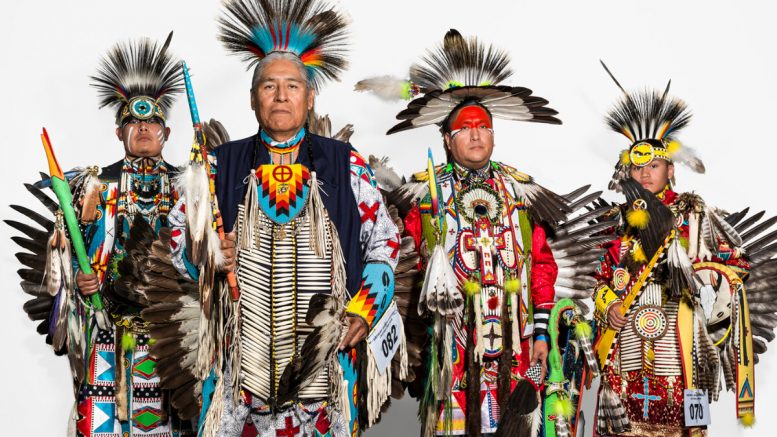Indians in the United States carry a diverse cultural heritage that extends over millennia and embodies the spiritual and cultural norms, heritage, and practices of many ethnic and cultural groups. Today, preserving this heritage is becoming increasingly important in the face of modern challenges and threats. Indians in the United States continue to struggle to preserve their language, traditions, and arts, and to protect their rights and dignity in a modern society where they face a variety of challenges, including availability of education, healthcare, and housing and employment. However, despite these challenges, interest in the culture and history of Indians is growing, which contributes to the preservation and respect of their centuries-old heritage and the building of a more harmonious and diverse society.
Indians in the USA: cultural diversity and the importance of preserving traditions

Currently, there are about approximately five million individuals from India residing in the United States, which is approximately 1.6% of the country’s total population. According to 2009 data, the highest concentration of Indian residents in the United States is found in California, with around 740,000 individuals, followed by Oklahoma with 415,000, and Arizona with 366,000. Los Angeles boasts the highest population of Native Americans among cities in the United States.
Indians, or Native Americans, represent a variety of ethnic and cultural groups, each with their own unique history, traditions and customs. Their cultural heritage and contributions to US history and culture are significant and deserve recognition.
Preservation and support of Indian cultural heritage is progressively gaining importance. important task for society. Many efforts are being made to preserve Indian languages, traditions, arts and history, and to ensure respect for their rights and dignity.
North American Indians face a variety of challenges, including accessibility to education, healthcare, and housing, and employment. Raising awareness of their culture, history and issues can help create a more just and respectful society for all its members.
In addition, it is important to note that many Indians actively participate in the political and social life of the country. They advocate for preservation of indigenous peoples’ rights, safeguarding natural resources, and promoting environmental sustainability. Many Indian communities also develop economies through tourism, handicrafts and traditional arts.
However, despite this, Indian communities still face challenges and problems, such as lack of access to basic services, social programs and development opportunities. This highlights the need to better understand and support their needs and interests.
Interest in the culture and history of the Indians is growing both within the country and abroad. Many people strive to study their traditions, languages and arts, to respect their wisdom and ways of life. This promotes the preservation and respect of the centuries-old heritage of Indian peoples and contributes to the construction of a more harmonious and diverse society.
Tourism and Cultural Heritage

Native American communities An important aspect of tourism development in Indian communities is the preservation and transmission of cultural traditions to the generations ahead. Many communities create education and training programs for youth so they can learn about their culture, history, and language. This contributes to the preservation of distinct elements of their culture and makes them accessible to visitors.
Tourism also contributes to the development of infrastructure in Indian communities. Attracting tourists often requires improving roads, creating comfortable accommodations and providing access to various services. This contributes to the overall economic development of this enhances the region and enhances the quality of life for local inhabitants. It is important to note that tourism development must respect the culture and traditions of Indian communities. It is necessary to take into account their opinions and interests when developing tourism programs and projects. This will help prevent the adverse effects of tourism on cultural heritage and the environment.
Over time, tourism development may become a key factor in the preservation and prosperity of Indian communities. It can help preserve traditions, increase income and enhance the well-being of residents in the local community. However, for this it is necessary to develop tourism considering the particularities and requirements of each specific community, as well as comply with the principles of sustainable development and respect for Cultural legacy.
An important aspect of tourism development in Indian communities is the preservation and transmission of cultural traditions to future generations. Many communities create education and training programs for youth so they can learn about their culture, history, and language. This aids in safeguarding distinctive facets of their culture. and make them accessible to visitors.
Tourism also contributes to the development of infrastructure in Indian communities. Attracting tourists often requires improving roads, creating comfortable accommodations and providing access to various services. This contributes to the overall economic development of this enhances the area and enhances the standard of living for residents. It is important to note that tourism development must respect the culture and traditions of Indian communities. Considering their viewpoints and interests is essential. when developing tourism programs and projects. This will help prevent the detrimental effects of tourism on cultural heritage and the environment.
Over time, tourism development may become a key factor in the preservation and prosperity of Indian communities. It can help preserve traditions, increase income and enhance the well-being of the local populace. However, for this it is necessary to develop tourism with consideration for the particulars and requirements. of each specific community, as well as comply with the principles of sustainable development and respect for cultural heritage.

